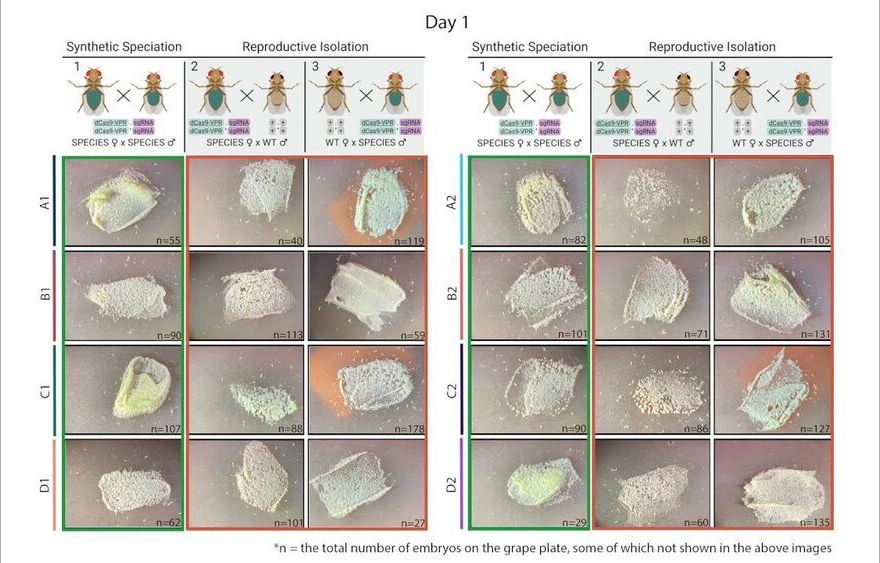CRISPR-based technologies offer enormous potential to benefit human health and safety, from disease eradication to fortified food supplies. As one example, CRISPR-based gene drives, which are engineered to spread specific traits through targeted populations, are being developed to stop the transmission of devastating diseases such as malaria and dengue fever.
But many scientists and ethicists have raised concerns over the unchecked spread of gene drives. Once deployed in the wild, how can scientists prevent gene drives from uncontrollably spreading across populations like wildfire?
Now, scientists at the University of California San Diego and their colleagues have developed a gene drive with a built-in genetic barrier that is designed to keep the drive under control. Led by molecular geneticist Omar Akbari’s lab, the researchers engineered synthetic fly species that, upon release in sufficient numbers, act as gene drives that can spread locally and be reversed if desired.










Comments are closed.